Alan Hollinghurst’s new novel, The Sparsholt Affair, opens in 1940, on the eve of the second World War, and over the course of its five sections spanning over 70 years it traces the influence one man, the devastatingly hunky David Sparsholt, exerts on the lives of those around him. That includes his son, Johnny, whose own coming out in the sexually liberated London of the 1960s is eclipsed by a gay sex scandal involving his father.
It’s not the first time the English novelist has tackled such a wide breadth of gay history. But the stunningly explicit, exquisitely rendered gay sex scenes for which his early novels The Swimming Pool Library and the Man Booker Prize-winning The Line of Beauty became known have largely retreated behind closed doors in The Sparsholt Affair.
On a break from his American book tour, Queerty called Hollinghurst at his Washington D.C. hotel to chat about how his writing about sex has evolved and whether an Oscar-ready film adaptation of one of his novels could be on the horizon.
Why write about a gay father and son?
It’s something I’ve often written about. In my novel The Spell there was a hunky sort of early middle age father and his gay son, the father having been married and then discovered his gayness. I think it’s partly because of an interest in different generations, which seems to be something I write about quite a lot. And obviously in this case I wanted to create a rather compromised figure in David Sparsholt. I can’t really categorize his sexuality for you, but he’s clearly someone who got married and had a child, but we know from the beginning that he’s someone who’s rather pliable, sexually. Someone who’s probably never going to welcome being classified as a gay person and who because of this mysterious scandal has his sexuality sort of stigmatized. I wanted to contrast him with someone obviously very very closely related to him, who kind of is claiming these freedoms very determinedly for himself in a way the father can’t really acknowledge.
How about we take this to the next level?
Our newsletter is like a refreshing cocktail (or mocktail) of LGBTQ+ entertainment and pop culture, served up with a side of eye-candy.
Well, you could have explored the contrast between the different generations of men who have sex with other men without the characters being father and son. Why was it important that they be so closely related?
Because of the scandal, the affair itself. If [Johnny] just was a young man who happened to know David Sparsholt it wouldn’t have had this affect on him. But because he’s his son and bears this unusual name, he’s someone who’s own coming out is slightly overshadowed by the fact that this thing has happened to his father. It complicates things for him, that this thing that he’s determined to do is something that his own father has felt so guilty about. I needed that greater intimacy of the family relationship between them.
David Sparsholt is primarily seen through other people’s perspective. He’s the object of desire for his Oxford schoolmates. We learn about the affair that makes him a national scandal through his son Johnny’s perspective. I’m curious why you maintained that distance from the character.
I always saw him as this screen onto which others would project their desires. His recognition of this when he’s still very young in the first part of the book I think I saw as being part of his coming to understand the power he might have over other people. Which will be a quality of leadership and will mean he has a very good war and he’s a successful businessman and so forth. I wasn’t ever particularly interested in tracing his inner life, and it may be that I wanted to set up a stronger contrast between the tremendously driven and determined and practical man and his much more sensitive and introverted son. David is a sort of force in the book. He’s someone that has an impact on other people’s lives. I could have written a different book that explored the pathos of his situation, his own struggles, but in the end I think I wanted him as a sort of agent in other people’s lives. I quite liked the sort of generational thing, that the book at the start appears to be about him, but the baton of the narrative is passed on to the next generation.
The breadth of gay history in this novel is impressive. Why did you want to cover so much time in one novel? What do you hope to convey about the ways that life has changed for different generations of gay men?
Well it hadn’t quite struck me until recently, but it’s something that actually I seem always to be doing. My first book, The Swimming Pool Library, which came out 30 years ago, is narrated in the early 80s, the present day in the book, by a rather hedonistic young man who falls in with a man in his 80s and reads extracts from his journals. And that was always dropping in, taking the temperature of different moments in gay life going back through the 20th Century and climaxing in this big crisis—I suppose another scandal in a way—of this anti-gay purge in 1954, and so sort of trying to teach the young man some lessons about the history of his kind. And I can see I was trying to do something similar in The Stranger’s Child. I suppose I just feel interested as I get older in the consequences of things over larger periods of time and the surprising ways that things turn out.
I never thought I was doing anything schematic or comprehensive about chronicling gay life, but I enjoy going into these different periods which each have their own quite strong ethos and moods.
Do you not see yourself filling in a literary or historical gap, giving voice to these perspectives at these times that didn’t have a voice at the time?
I felt that, of course, very strongly when I first started out. It’s hard now to recapture what the state of knowledge we were in in the 70s. The Sexual Offences Act of 1967, the decriminalization of homosexuality—male homosexuality in England—the law changed overnight, but it led rather slowly to changes in behavior and attitudes. I remember when I was a student, suddenly there were people looking at gay history, gay writers who hadn’t really been identified as gay before—E.M. Forester. That whole new mood of all these things you could now say. I think when I started writing my first book at the beginning of 1984 I did have a sense, yes, that I was going to put into a novel something that hadn’t really been seen before, in English fiction anyway. It was an amazingly lucky position to find myself in. There were all sorts of stories just waiting to be told. And I think one way or another I’ve carried on doing that. But as I said, not with a view to creating overall some comprehensive picture of the subject. But coming at it from different angles at different times.
How has gay sexuality been reshaped by gay rights, increased acceptance?
Gosh. [Laughs] That’s a large question.
Well, just in the lives of your characters.
Yes, obviously there’s a move, just in this book, from the intense secrecy and indeed darkness in which the culminating gay sex act happens in the first section of the book. It’s so private that nobody else knows about it, it’s not mentioned for another 30 years. The gradually increasing openness, the fact that Johnny can go to an openly gay nightclub in 1964 the way he wouldn’t have been able to do seven years earlier, and moving through the latter stages of the book in which he lives in a world of instant contact and the extraordinarily speeded up communication, in which he misses something of the romance of the old world. And the fact that the notion of personal privacy has changed so radically, it has almost disappeared. It’s quite an extraordinary change in our social lives but also in our whole sense of ourselves.
I’ve read more than one review suggesting that first time readers shouldn’t start with Sparsholt, they should read your earlier work first. What do you say to that?
[Laughs] I’ve actually been rather sort of more distant from the reviews this time. They could say that for two reasons: Because they thought it was a falling off from the earlier work, or they thought it was somehow hard to get into without the knowledge of the earlier work. It’s hard for me to know what someone means by that. I’m quite happy for anyone to read any of my work, so start where you like!
The book has elusive things about it. I feel more and more interested in not telling the whole story and leaving these grey areas or complete gaps in which the reader will speculate as to what’s going on. And perhaps some reviewers have found that frustrating, and I think some reviewers have liked it quite a lot. I feel more and more interested in creating novels in which a great deal is unresolved. As in life, there’s a lot that you’re probably not ever really going to understand. Of course it would be quite frustrating if you felt like you couldn’t understand anything. [Laughs] But I do feel like I want to get away from neat closure and explanation of things.
 How has your writing about sex evolved over the years? How do you approach writing about gay sex differently now?
How has your writing about sex evolved over the years? How do you approach writing about gay sex differently now?
Well, I don’t write about it nearly so much I don’t think. Some people have complained about that too. It was very much part of the point when I started, when I wrote The Swimming Pool Library, that I wasn’t going to be pussyfooting around the subject. Indeed, I was telling the story through the eyes of a young man who kind of lives through sex to a great degree. I wanted to integrate it into the picture of a young gay man’s life, how central it was. Also, in the horrible atmosphere of the mid- to late-80s it seemed all the more important to me to be upfront and defiant about the whole thing. And I thought just from a novelistic point of view, that sexual behavior is as worthy of description and analysis as other aspects of human interactions. There was something quite interesting to do about it if you just paid it the same degree of careful attention.
I think there has been a change. Perhaps in the last couple of books, in particular, it’s been part of this thing of not actually knowing for sure the truth about what happens between people. There seems a real point in closing the bedroom door. I don’t want to repeat myself and perhaps I just felt the interest of urgency of it as a subject had reduced with time.
Do you think that’s in any way a reaction to the changing way we think about privacy?
Yes, it was something that was much more dramatic and impactful when I was first doing it. We’re so saturated with sexual imagery and candor about sexual things that you may be right that it’s lost some of its interest to me as a subject to me for that reason.
What was the last great gay sex scene you read?
[Laughs] God! It would have been quite a while ago, I guess. I don’t sort of keep up with gay fiction so much specifically anymore.
Why’s that?
I’m not actually so aware of it as a genre as I used to be. I think it did have a much clearer profile in the 80s and 90s than it does now when it seems to have merged back into everything else. The definition of gay literature which arose in response to real pressures and needs and opportunities has changed.
A couple of years ago I wrote an introduction to Edmund White’s A Boy’s Own Story, and I reread that great trilogy of the book wondering what I would think of them after having not looked at them for a very long time. And actually I thought they were all magnificent and I was even more impressed by them than I had been the first time. The picture of the New York cruising world of the 70s and early 80s and the very intense evocations of being in love with particular men and their physicality that Edmund brings off in those books is really remarkable.
I read something that commented on the essentially solitary nature of your characters. Do you think that’s something particular to gay men, maybe the result of the subtle ways that society sanctions and discourages gay relationships?
Possibly. I’ve always been quite interested in observing my characters when they’re by themselves as well as with other people. I think I create a lot of characters who are moved by strong but perhaps not quite satisfiable desires and longings. The first three parts of this new book are about someone longing for someone that they in all probability can’t have. There’s that loneliness of desire. I’d be a little reluctant to generalize. I’m sure straight people can be solitary and lonely, but there may be something in that.
There’s also a sense of camaraderie in the gay world of a distinct kind. There are very strong friendships often, non-sexual or perhaps briefly sexual friendships between gay men. Yeah, I’d be a bit reluctant to pronounce on the subject.
Call Me By Your Name was such a phenomenon this year. Has there been any interest in adapting any of your novels for the screen? Has it increased?
Rather the reverse actually! The Line of Beauty was filmed for the BBC, a three-part miniseries, in 2006. And I’ve repeatedly sold options for The Swimming Pool Library. In the early 90s the BBC commissioned the playwright Kevin Elliott to do a three-part adaptation of The Swimming Pool Library which they sat on for two years before eventually deciding not to do it. So there is occasional interest. We were talking about changes—a film of The Swimming Pool Library in the early 90s would be very different from one if it were to be made now. It would already be a historic thing in a way, and the impact of its sexual openness would not be nearly the same as it would have been 25 years ago.
I think these more recent books I’ve been writing with their strange more open structures are a little bit difficult. I think a very imaginative writer and director could do it, but I feel perhaps the cinema requires a little more in the way of resolution and so forth. So I can imagine the stories being rather reworked to that end. I dunno.
I would love something to happen.




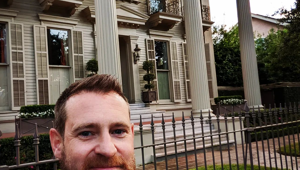


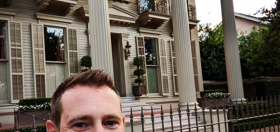

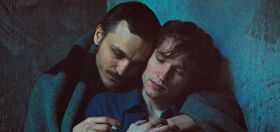
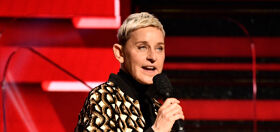

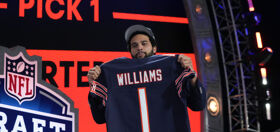









Kangol
He’s a superb writer, and The Swimming Pool Library and The Line of Beauty are masterpieces. I haven’t read the new book but I’m looking forward to it. The BBC miniseries version of The Line of Beauty also is worth seeing, but if you can, read the novel first.
jjose712
The line of beauty is amazing. I hope the new one is as good as that novel.
The swimming pool library and The folding star are very good too